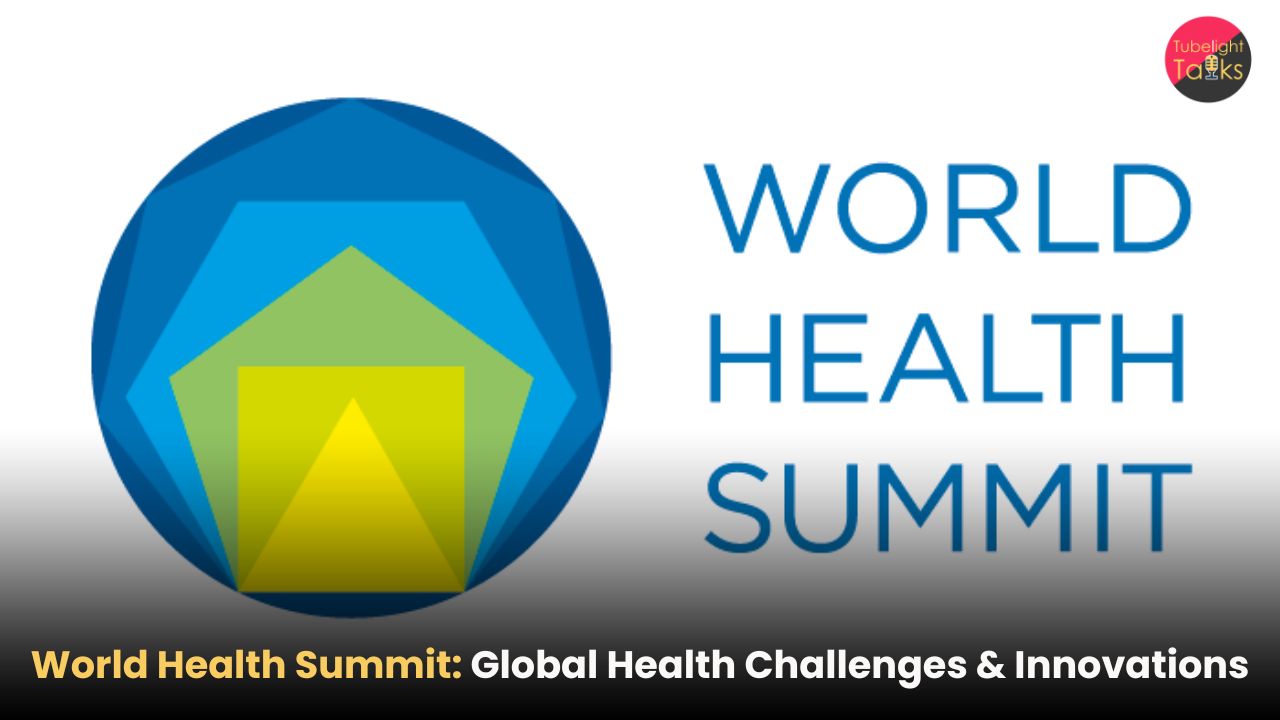The World Health Summit 2025, held in Berlin from October 12–14, brought together over 3,000 global health leaders to address pressing health issues. Under the theme “Taking Responsibility for Health in a Fragmenting World,” discussions centered on:
- Global Health Architecture: Reimagining governance and financing models.
- Noncommunicable Diseases (NCDs): Strategies to combat rising chronic illnesses.
- Digital Health Innovations: Leveraging technology for better healthcare delivery.
- Climate Crisis and Health: Addressing environmental impacts on health.
- Women’s and Children’s Health: Ensuring equitable healthcare access.
These discussions aimed to foster interdisciplinary solutions and collaborative actions to strengthen global health systems.
1.Transforming Global Health Architecture

Experts emphasized the need to rethink health governance and financing models to adapt to current challenges. This includes enhancing international collaboration and resource allocation.
2.Combating Noncommunicable Diseases (NCDs)

NCDs like heart disease, diabetes, and cancer are leading causes of death globally. The summit highlighted the importance of prevention, early detection, and treatment strategies to address this growing concern.
3.Leveraging Digital Health Innovations
The integration of digital tools such as telemedicine, AI diagnostics, and electronic health records was discussed as a means to improve healthcare accessibility and efficiency.
4.Addressing the Climate Crisis
The health impacts of climate change, including increased respiratory and vector-borne diseases, were a focal point. Strategies to mitigate these effects and build resilient health systems were proposed.
5.Ensuring Women’s and Children’s Health
Ensuring equitable access to healthcare for women and children was emphasized, with a focus on maternal health, nutrition, and preventive care.
Also Read: How Modern Marketing Shaped the Gold-Buying Tradition on Dussehra
Recent News Highlights
- Ebola Outbreak in Congo: As of late September 2025, a new Ebola outbreak in the Kasai province has resulted in 64 reported cases and 42 deaths. The World Health Organization (WHO) has raised alarms over severe funding shortages hindering response efforts.
- U.S. CDC Budget Cuts: Proposed budget cuts of 53% (gross, netting to 42% after transfers) to the Centers for Disease Control and Prevention (CDC) could impair efforts to prevent chronic diseases and respond to health threats.
- India’s Heart Health Initiatives: On World Heart Day (September 29, 2025), India is focusing on ongoing action-oriented efforts to combat cardiovascular diseases, implementing structured interventions and public-private partnerships.
Beyond Medicine: Spiritual Practices for Sustainable Health
The World Health Summit 2025 highlighted urgent global health challenges—from noncommunicable diseases and climate impacts to digital innovation and equity in care. While world leaders search for solutions, Sant Rampal Ji Maharaj in his spiritual discourses explains that true wellness goes beyond medical systems—it begins with righteous living, abstaining from harmful habits like smoking, drinking, and meat consumption, and embracing a Satvik lifestyle based on God’s Constitution.
He teaches that by practicing true devotion (Bhakti) as guided in the scriptures, people can overcome both physical suffering and mental stress. This holistic approach aligns with the Summit’s call for responsibility and collaboration, reminding us that sustainable health requires not only scientific advancements but also spiritual discipline, compassion, and a life rooted in truth.
FAQs on World Health Summit 2025
Q1: What is the World Health Summit 2025?
An international conference held in Berlin to discuss global health challenges and solutions.
Q2: When did it take place?
From October 12 to October 14, 2025.
Q3: Who participated?
Over 3,000 health leaders from more than 100 countries.
Q4: What were the main topics?
Global health architecture, NCDs, digital health, climate crisis, and women’s and children’s health.
Q5: Why is it important for India?
It provides insights and strategies that can be adapted to strengthen India’s healthcare system.
Q6: How can digital health innovations help?
By improving healthcare accessibility, efficiency, and quality through technology.










